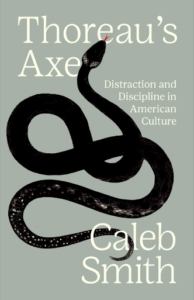"Here," she said, "in this here place, we flesh; flesh that weeps, laughs; flesh that dances on bare feet in grass. Love it. Love it hard. Yonder they do not love your flesh. They despise it. They don't love your eyes; they'd just as soon pick em out. No more do they love the skin on your back. Yonder they flay it. And O my people they do not love your hands. Those they only use, tie, bind, chop off and leave empty. Love your hands! Love them. Raise them up and kiss them. Touch others with them, pat them together, stroke them on your face 'cause they don't love that either. You got to love it, you! And no, they ain't in love with your mouth. Yonder, out there, they will see it broken and break it again. What you say out of it they will not heed. What you scream from it they do not hear. What you put into it to nourish your body they will snatch away and give you leavins instead. No, they don't love your mouth. You got to love it. This is flesh I'm talking about here. Flesh that needs to be loved."
–Toni Morrison, Beloved (1987)
*
A congregation gathers in a clearing in the woods. They arrive from elsewhere, from "yonder," where they are despised. Out there, in situations overseen by white masters and slavecatchers, Black people are not loved; they are worked to exhaustion, killed, and consumed. Here, in the clearing, they are called to love and care for themselves, beginning with their flesh. Hatred atrophies their bodies, but loving attention promises to bring them, piece by piece, member by member, back to life.
Though this passage tells a story from the 1850s, it was published in 1987. Toni Morrison, like other writers seeking histories of Black experience under slavery, understands that the nineteenth century's documentary archives can hide and distort as much as they disclose; she uses the resources of imaginative fiction to pursue the truth by other means. The sermon in the clearing is her fabulation of what a Black revival, unseen and unrecorded by white authorities, might have sounded like.
The revival in the clearing, as Morrison develops it, is a ceremony for healing the wounds inflicted by this pathological economic and social relation.
The one who speaks in Morrison's novel is an "unchurched preacher," formerly enslaved, called Baby Suggs (102). Like many other preachers, Baby Suggs draws a stark opposition between two realms. The two she has in mind, however, are not the eternal and the secular. In her exhortation, there are two places, two theaters of life. She points to them with the words there and here. There are also two communities, they and you. The living world itself is segregated, Baby Suggs knows, and in this segregated world the old religious subordination of the flesh to the spirit has been racialized.
As she preaches, Baby Suggs draws from and recomposes a familiar passage from the Book of Psalms:
They have mouths, but they speak not: eyes have they, but they see not:
They have ears, but they hear not: noses have they, but they smell not:
They have hands, but they handle not: feet have they, but they walk not: neither speak they through their throat. (115:5–7)
The psalm is describing "heathens" who worship idols made by human hands, neglecting the true God. It portrays them as lifeless bodies, made of organs that do not sense and limbs that do not work. Their fixation on worldly things becomes a kind of blinded incapacity; they have been created for a higher purpose, but they remain detached from it, inattentive and silent.
In Baby Suggs's revision, the imagery is of white neglect and violence toward Black flesh. White people are unloading their ancient fears about desire, the wickedness of the body's needs and appetites, onto Black lives, then repressing and dismembering them, murderously. "O my people they do not love your hands. Those they only use, tie, bind, chop off and leave empty." A terrible asceticism turns self-mortifications outward, against the other; white people destroy the Black bodies they hold captive and exploit, as if to punish the wickedness of their own dependency.
The revival in the clearing, as Morrison develops it, is a ceremony for healing the wounds inflicted by this pathological economic and social relation. Baby Suggs reclaims and revivifies the bodies of her listeners, one part at a time. This preacher is a genius of deixis, the linguistic act of referring to the circumstances of a speaker's copresence with her audience—" here," "in this place," "this is flesh I'm talking about here," she says, summoning and awakening them. She is speaking commands, but she is also activating their own powers of perception, their capacity for care. She is calling their attention to the very worldliest parts of themselves, to their own flesh, taking it out of other hands. Love is her word for this reanimating act of attention to one's own organs of sensation and expression.
___________________________________

Excerpted from Thoreau's Axe: Distraction and Discipline in American Culture by Caleb Smith. Copyright © 2023 by Caleb Smith. Published by Princeton University Press and reprinted here by permission.




No comments:
Post a Comment